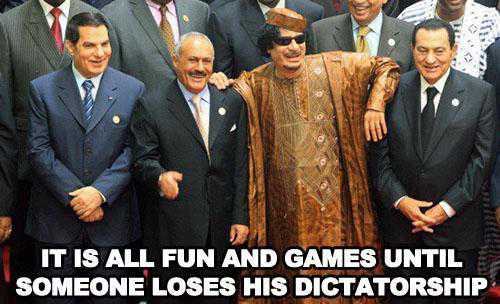
Racism takes many different forms. It can range from abusive language or discriminatory treatment to genocide, simply on the basis of someone’s ‘race’ or colour.
Every day, science proves more clearly that humanity, although diverse, is one family and one people. Sadly our common experience also shows that racism, hatred or dislike of others simply because of their origin or culture is a common human failing.
The definition of racial discrimination is contained in Article 1 of the International Convention on the Elimination of All Forms of Racial Discrimination to which Australia is a party:
“The term “racial discrimination” shall mean any distinction, exclusion, restriction or preference based on race, colour, descent, or national or ethnic origin which has the purpose or effect of nullifying or impairing the recognition, enjoyment or exercise, on an equal footing, of human rights and fundamental freedoms in the political, economic, social, cultural or any other field of public life”.
Myths and stereotypes are a key component of racism:
- they reduce a range of differences in people to simplistic categorisations
- transform assumptions about particular groups of people into ‘realities’
- are used to justify status quo or persisting injustices
- reinforce social prejudice and inequality
Three out of four Indigenous Australians experience racism in their everyday lives.
At an individual and interpersonal level racism often amounts to:
- an instant or fixed picture of a group of people, usually based on negative and ill-informed stereotypes
- a preconceived negative opinion
- limiting the opportunities (intentionally or not) of certain individuals or groups because of personal characteristics such as race or colour
Labelling of Indigenous Australians including stereotypes such as dark skin, despair, levels of alcohol consumption, laziness, levels of intelligence, ability to work and care for children, and levels of criminality are all part of the myths and stereotypes that perpetuate racism in Australia.
Eradicating racism is a task we all share.
Sadly racism is common in Australia. Here, we have put together some stories about the shape that racism takes in Australia of today.
A story from Alice Springs
A group of young leaders from Yuendumu, a remote central Australian Aboriginal community were ejected from an Alice Springs backpacker hostel in March 2008 because some tourists staying there complained they were ‘afraid of Aborigines’.
The 16 people in the group which included women and small children, had driven the 300 kilometres to Alice Springs for lifesaving training run by the Royal Lifesaving Society. Most were young leaders, chosen specially for their standing in the Yuendumu community.
As they were moving into their rooms the resort manager told them they’d have to pack up and go because some tourists in the hostel had complained of being ‘afraid of Aborigines’ and these tourists ‘bring in a lot of money’.
The organisers of the trip are stunned. Angry about the incident, the CEO of the Royal Lifesaving Society is describing it as ‘pure racism’.
5½ hours – a story from Brisbane
Delmae Barton aged 62, a prominent Indigenous Elder and an opera singer, lay for more than five hours on a bus stop seat near Griffith University’s Nathan Campus in July 2006, unable to reach out for help after vomiting from a suspected stroke or diabetes attack.
For five and a half hours, commuters, students and bus drivers ignored her plight until two young Japanese men asked if she needed water and help.
Her friend and the director of the Gumurri Centre at the university Boni Robertson, says it is a disgrace that Auntie Delmae’s plight was ignored by hundreds of commuters as buses came and went.
She said ‘nobody would stop to help me. Is this all I’m worth?’ She believes people thought she was a drunk or a drug addict, and that the colour of skin encouraged them to walk on by.
The then Premier Peter Beattie told parliament he was ‘really disappointed’ by the incident and apologised on behalf of Queenslanders.
A story from Townsville
Aborigines can no longer receive a fair trial in Townsville according to survey results to be released in July that show a majority of residents would be unable to expel racist attitudes in court. The survey was conducted to demonstrate the need for the Lex Wotton Palm Island Riots case to be moved from a scheduled hearing in Townsville to Brisbane to ensure a fair and just trial.
In the survey, commissioned by Sydney-based law firm, Levitt Robinson, over half of Townsville residents claimed they could not disregard negative beliefs held about Aborigines, even if instructed by a judge in a courtroom setting.
These results bring to light a segregated city rife with racist views with only one in ten Townsville residents having a positive attitude towards Aboriginal people in the community.
Ignorance seemed to be a major factor with only one in four people correctly attributing the cause of the Palm Island Riots to a death in custody.
A story from Sydney
In April 2008, a world-renowned Aboriginal composer, buzzing after a standing ovation at the Sydney Opera House, was turned away from half-empty Kings Cross haunt Hugo’s. He and his friend were told, “You can’t expect us to just let anyone in.”
William Barton, a son of Delmae Barton, who has been to some of the world’s top bars over his acclaimed career, was told the venue was “at capacity” as he tried to get it at 9.30pm on a Sunday to celebrate a friend’s birthday. His friend immediately fronted Hugo’s door staff – and was rudely told: “You can’t expect us to just let anyone in.”
Racial discrimination is against the law
The Racial Discrimination Act (1975) makes it illegal to discriminate against people on the basis of their race, colour, descent or ethnic or national origin. It is unlawful to discriminate against someone when it prevents them from enjoying their human rights, such as employment, land/housing/accommodation, education, access to public places and facilities, access to goods and services (e.g. doctors, lawyers, applying for credit, entry to pubs, etc.).
Antar
 YEREVAN. – Establishment of normal relations between Yerevan and Ankara will contribute to Turkey’s joining the EU, said Wilfried Martens, President of European People’s Party (EPP).
YEREVAN. – Establishment of normal relations between Yerevan and Ankara will contribute to Turkey’s joining the EU, said Wilfried Martens, President of European People’s Party (EPP).





